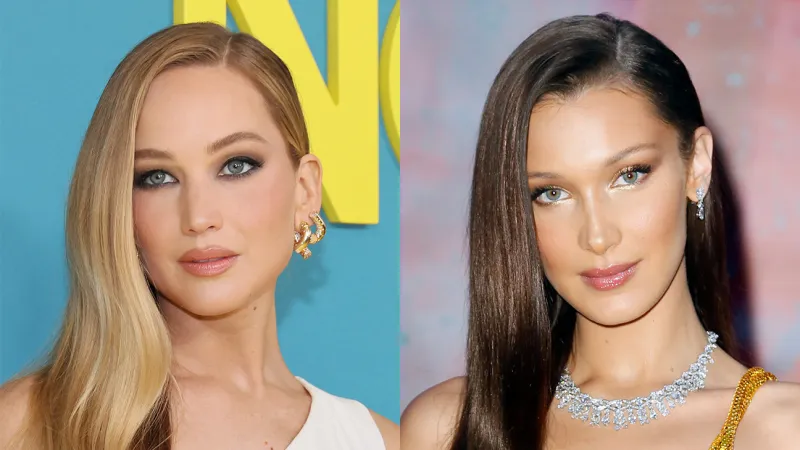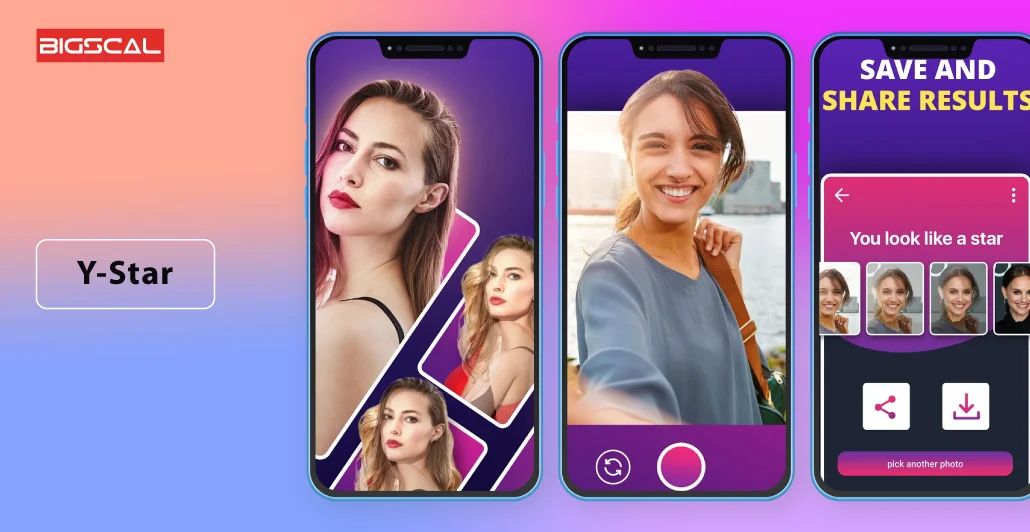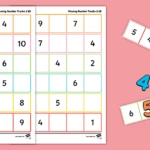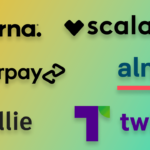Now Reading: Find Your Twin: The Fun World of Celebrity Look Alike Apps
-
01
Find Your Twin: The Fun World of Celebrity Look Alike Apps
Find Your Twin: The Fun World of Celebrity Look Alike Apps

Have you ever been told you look just like a famous actor or musician? Or maybe you’ve caught a glimpse of yourself in the mirror and thought, “Hey, I kind of look like…” It’s a fun thought, and now, technology can help you find the answer. The rise of the celebrity look alike face-recognition app has turned this simple curiosity into a viral trend. These apps use sophisticated technology to scan your face and match it with a massive database of famous people. It’s a fascinating blend of artificial intelligence and pure entertainment, allowing anyone to discover their famous doppelgänger with just a few taps on their phone.
This article will explore the exciting world of celebrity look alike apps. We’ll dive into how they work, which ones are the most popular, and how you can get the best results. We’ll also touch on the technology behind the magic and answer some common questions you might have. Get ready to find your famous twin!
Key Takeaways
- What They Are: Celebrity look alike apps use facial recognition technology to compare your photo to a database of celebrities and find your closest match.
- How They Work: These apps analyze key facial features like eye spacing, nose shape, and jawline, converting them into a unique digital signature to find a match.
- Why They’re Popular: They are a source of fun, social media entertainment and satisfy our natural curiosity about who we resemble.
- Getting Good Results: Use clear, well-lit, forward-facing photos without accessories like glasses or hats for the most accurate matches.
What Exactly Is a Celebrity Look Alike App?
At its core, a celebrity look alike app is a mobile application designed for one fun purpose: to tell you which famous person you most resemble. You simply upload a photo of yourself, and the app’s internal technology gets to work. Within seconds, it presents you with your celebrity match, often with a side-by-side comparison and a percentage of how closely you resemble them.
These apps have become incredibly popular on social media platforms like Instagram, TikTok, and Twitter. People love sharing their results, whether they’re hilariously inaccurate or shockingly spot-on. It’s a lighthearted way to engage with friends and followers, sparking conversations and laughter. Beyond the fun, it taps into a basic human curiosity about our own appearance and how others perceive us. Finding out you have the same smile as a Hollywood star or the same eyes as a famous singer is a delightful little ego boost.
How Does the Face-Recognition Technology Work?
The magic behind a celebrity look alike app isn’t magic at all—it’s advanced technology. These apps use a form of artificial intelligence (AI) called facial recognition. When you upload your picture, the app’s algorithm doesn’t just “see” your face. Instead, it maps it out in detail.
The Process of Facial Mapping
- Detection: First, the software identifies the face in your photo, separating it from the background or any other objects.
- Analysis: Next, it analyzes the geometry of your face. The algorithm identifies key facial landmarks, often called nodal points. This includes dozens of features, such as the distance between your eyes, the width of your nose, the depth of your eye sockets, the shape of your cheekbones, and the contour of your jawline.
- Conversion: Your unique facial geometry is then converted into a numerical code or a mathematical formula. This is your “faceprint”—a digital signature that is unique to you, much like a fingerprint.
- Matching: Finally, the app compares your faceprint against its vast database of celebrity faceprints. The algorithm searches for the celebrity faceprint that has the highest degree of similarity to yours and presents that as your match.
This entire process happens in just a few seconds, showcasing the power and speed of modern AI.
The Most Popular Celebrity Look Alike Apps in 2025
With so many options available, it can be tough to choose the right app. Some are free with ads, while others might require a subscription for full features. Here’s a look at some of the top contenders that users are loving right now.
StarByFace
StarByFace is one of the most straightforward and popular choices. Its main selling point is its simplicity. You visit the website or use the app, upload your photo, and it immediately gets to work. The app is known for respecting user privacy; it claims not to store your photos after the analysis is complete. The results are easy to share, making it perfect for a quick post to your social media stories.
Gradient
Gradient is more than just a celebrity look alike finder; it’s a full-fledged photo editor. While its celebrity matching feature is what made it famous, it also offers a range of other fun AI-powered tools, like estimating your ethnicity or turning your photo into a classical portrait. Gradient often provides a sequence of celebrity transformations before landing on your final match, creating a dynamic and engaging experience. It typically operates on a subscription model after a free trial period.
Y-Star

Y-Star is another strong contender in the celebrity doppelgänger space. It boasts a large and constantly updated database of celebrities from various fields, including actors, musicians, and even athletes. Users appreciate its fast processing speed and generally accurate results. Like many similar apps, it provides a similarity percentage to show you just how close of a match you are. It’s a solid, no-fuss option for anyone curious to find their famous twin.
Tips for Getting the Most Accurate Match
The quality of your photo directly impacts the accuracy of your celebrity look alike result. An AI is only as good as the data it’s given, so follow these tips to get the best possible match.
- Use a High-Quality Photo: A blurry or pixelated image will be difficult for the AI to analyze. Use a clear, high-resolution picture.
- Look Directly at the Camera: A forward-facing portrait works best. A photo taken from the side or at an odd angle can distort your facial features and confuse the algorithm.
- Good Lighting is Key: Avoid photos with harsh shadows or dim lighting. Natural, even lighting that illuminates your entire face is ideal. Shadows can alter the perceived shape of your features.
- Keep a Neutral Expression: A huge grin, a frown, or a silly face can change the geometry of your face. A simple, neutral expression or a soft smile usually yields the most accurate results.
- Remove Obstructions: Take off glasses, sunglasses, and hats. Also, try to pull your hair back from your face so the app can clearly see your forehead, ears, and jawline.
Following these simple steps will give the facial recognition software the best chance to accurately map your features and find your true celebrity look alike.
The Psychology Behind Our Fascination
Why are we so captivated by the idea of having a celebrity look alike? The appeal goes deeper than simple fun. Psychologically, it connects to our sense of identity and social standing. Celebrities are often seen as symbols of success, beauty, and talent. Being told we resemble one of them can feel like a compliment, indirectly associating us with those positive traits.
This phenomenon is also tied to the concept of “social proof.” When an app—an unbiased piece of technology—tells us we look like a beloved public figure, it validates our appearance in a unique way. It’s an external confirmation that can boost self-esteem. As noted in a discussion on media trends by forbesplanet.co.uk, viral social media challenges often tap into our desire for connection and shared experience. Sharing your celebrity twin is a way to participate in a global conversation and see how you stack up.
Are These Apps Safe? The Privacy Question
Whenever you upload a personal photo to an app, it’s natural to wonder about privacy. What happens to your picture? Is your data being stored or sold? These are important questions to ask.
Most reputable celebrity look alike apps have privacy policies that outline how they handle your data. Generally, the process works like this:
- Temporary Use: Many apps state that they only use your photo for the analysis and do not store it on their servers afterward.
- Anonymized Data: Some apps may collect anonymized facial geometry data to improve their algorithms, but this data is separated from your personal information.
However, it’s always wise to be cautious. Before using any app, take a moment to read its privacy policy and user reviews. Stick to well-known apps from the official Apple App Store or Google Play Store, as they are vetted for security standards. Avoid downloading apps from third-party websites.
What to Look For in a Privacy Policy
|
Feature |
What It Means |
Why It’s Important |
|---|---|---|
|
Data Deletion |
The policy states that your photos are deleted after analysis. |
Ensures your personal image isn’t stored indefinitely on a server you don’t control. |
|
No Third-Party Sharing |
The company promises not to sell or share your photos with other companies. |
Protects you from your image being used for advertising or other purposes without consent. |
|
Clear Language |
The policy is written in a way that is easy to understand. |
Transparency is a sign of a trustworthy company that respects its users’ privacy. |
The Future of Facial Recognition Entertainment
The celebrity look alike app is just the beginning. As AI and facial recognition technology continue to evolve, we can expect even more creative and immersive entertainment experiences. Imagine apps that can place you in a movie scene with your celebrity twin or create a deepfake video where you’re delivering a famous movie line.
Other potential applications include:
- Historical Doppelgängers: Find out which historical figure you resemble.
- Artistic Twins: See which famous portrait from art history looks like you.
- Animated Character Matches: Discover which cartoon or animated character shares your features.
While the entertainment possibilities are vast, the continued growth of this technology will also bring more discussions about ethics, consent, and digital identity. For now, these apps remain a harmless and amusing way to engage with technology and share a laugh with friends.
Conclusion
Finding your celebrity look alike is a modern-day parlor game powered by surprisingly complex technology. These face-recognition apps offer a moment of fun, satisfying our curiosity and giving us a new way to connect on social media. By understanding how they work and how to use them safely, you can join in on the trend without worry. Whether your result is a perfect match or a funny mismatch, it’s all about the enjoyment of discovery. So go ahead, upload your best photo, and find out which star shares your face—you might be surprised by the answer!
Frequently Asked Questions (FAQ)
Q1: Are celebrity look alike apps accurate?
A1: The accuracy can vary depending on the app’s algorithm and the quality of your photo. They are designed for entertainment, so results should be taken with a grain of salt. Using a clear, well-lit, forward-facing photo will give you the most “accurate” result the app can provide.
Q2: Do these apps cost money?
A2: Many celebrity look alike apps are free to use but may be supported by ads. Others operate on a “freemium” model, where the basic feature is free, but you have to pay a subscription for more advanced tools or an ad-free experience.
Q3: Can I use a photo of a friend to find their celebrity look alike?
A3: Technically, yes, the app will analyze any photo with a face in it. However, you should always respect people’s privacy and get their permission before uploading their picture to any app or service.
Q4: What if I get a result I don’t like?
A4: Don’t worry! These apps are just for fun. Try uploading a different photo or using a different app. Lighting, angle, and your expression can all lead to a completely different celebrity look alike result.
Q5: Is the facial recognition technology used in these apps the same as in security systems?
A5: They are based on the same core principles of facial mapping, but the application is very different. Security-grade facial recognition is far more rigorous, expensive, and precise. The technology in entertainment apps is a lighter, consumer-friendly version designed for fun rather than identification.
















